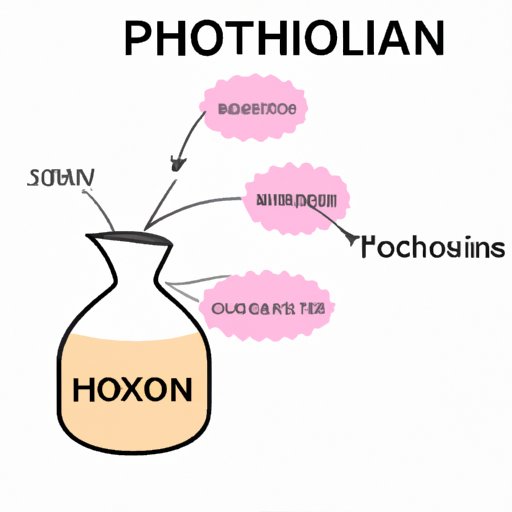Introduction
Lactation is the process of producing milk from the mammary glands in a mother’s breast. Breastfeeding is not only a way to provide essential nutrients to a newborn baby but also helps develop a strong bond between the mother and her child. Despite the benefits of breastfeeding, many mothers struggle with lactation problems, which can hinder this essential process.
The human body relies on hormones to function correctly, and breastfeeding is no exception. Hormones play a vital role in regulating lactation and establishing a successful breastfeeding relationship
Prolactin hormone: An overview
Prolactin is a hormone produced in the pituitary gland, located at the base of the brain. The hormone is responsible for stimulating milk production from the mammary glands in the breast.
Prolactin levels in the body are influenced by a mother’s nursing patterns. The more a mother breastfeeds, the more prolactin is produced in the body. Additionally, prolactin is regulated by the production of dopamine and estrogen in the body.
Prolactin works alongside another hormone, oxytocin, in the lactation process. Oxytocin stimulates the letdown reflex, which causes milk to be released from the breast. Prolactin is responsible for the actual production of milk, while oxytocin is responsible for its release.
Prolactin hormone during pregnancy
The role of prolactin begins during pregnancy. The hormone plays a critical role in preparing the breast for milk production and breastfeeding. Initially, prolactin levels are low during pregnancy, but they increase significantly towards the end of the third trimester.
During pregnancy, the breast tissue changes and grows, eventually leading to the formation of the alveoli – the glands responsible for milk production. Prolactin stimulates further growth of these glands and prepares the body for lactation.
How to boost prolactin production naturally
Breastfeeding is the most effective way to increase prolactin production naturally. Frequent nursing and pumping signal the body to produce more milk and stimulate the release of prolactin hormone.
Mothers can also boost their prolactin levels by ensuring they stay hydrated and consume a healthy diet. Drinking ample amounts of water, eating nutrient-rich foods, and taking lactation supplements can all improve milk production.
Getting enough sleep and practicing relaxation techniques such as yoga or meditation can also help stimulate prolactin production. High levels of stress in the body can reduce prolactin levels and cause a decrease in milk supply.
The impact of stress and other factors on prolactin production
Other factors may influence prolactin production, including health conditions, medications, and lifestyle choices.
High levels of stress in the body can significantly affect prolactin production and cause a decrease in milk supply. It is essential to prioritize self-care techniques, such as meditation and mindfulness, to reduce stress levels.
Some medications can suppress prolactin levels, such as dopamine antagonists, which are often prescribed for underlying health conditions. Mothers should consult their healthcare provider about any medication they are taking and their possible impact on milk supply.
Benefits of breastfeeding and the role of prolactin in establishing a successful breastfeeding relationship
There is a wealth of research that outlines the benefits of breastfeeding for both the mother and the baby. For instance, breastfeeding can lead to a stronger immune system, reduced risk of ear infections, and lower incidence of Sudden Infant Death Syndrome (SIDS) in babies.
Breastfeeding can also provide long-lasting emotional benefits that extend beyond the infant years. Studies have shown that breastfeeding mothers report significant reductions in anxiety and depression symptoms and elevated feelings of positivity and well-being.
Prolactin plays a crucial role in establishing a successful breastfeeding relationship. Higher levels of prolactin lead to increased milk production, which can ensure that the baby is getting enough nutrients. Additionally, frequent nursing and pumping can help mothers establish a robust milk supply and stimulate further prolactin production.
Conclusion
Prolactin hormone plays a significant role in lactation and breast milk production. Learning how to boost prolactin production naturally and being mindful of factors that may impact its levels can be incredibly helpful for new mothers looking to establish a successful breastfeeding relationship with their baby. By prioritizing self-care techniques and seeking support and resources, mothers can achieve a more fulfilling breastfeeding experience.
